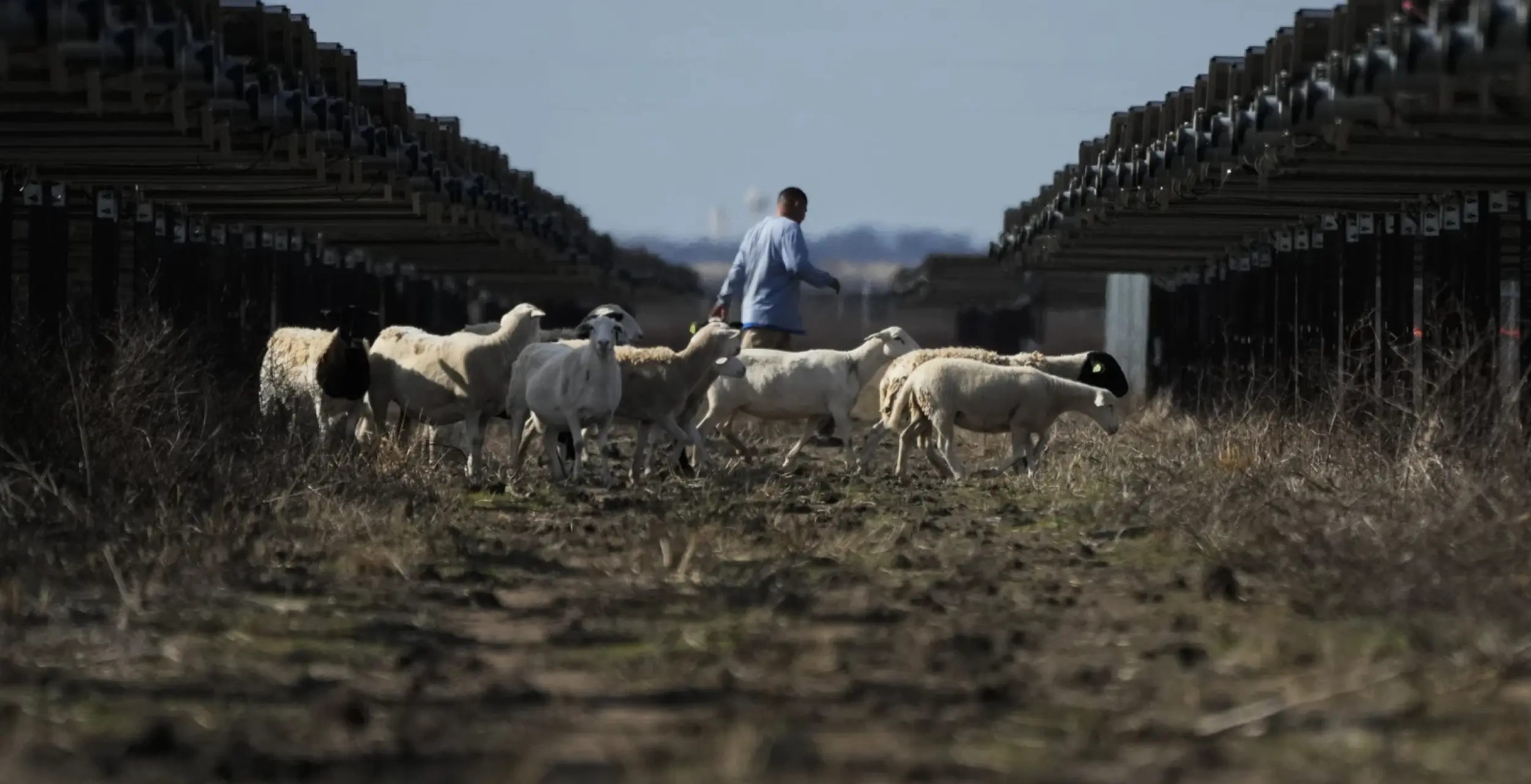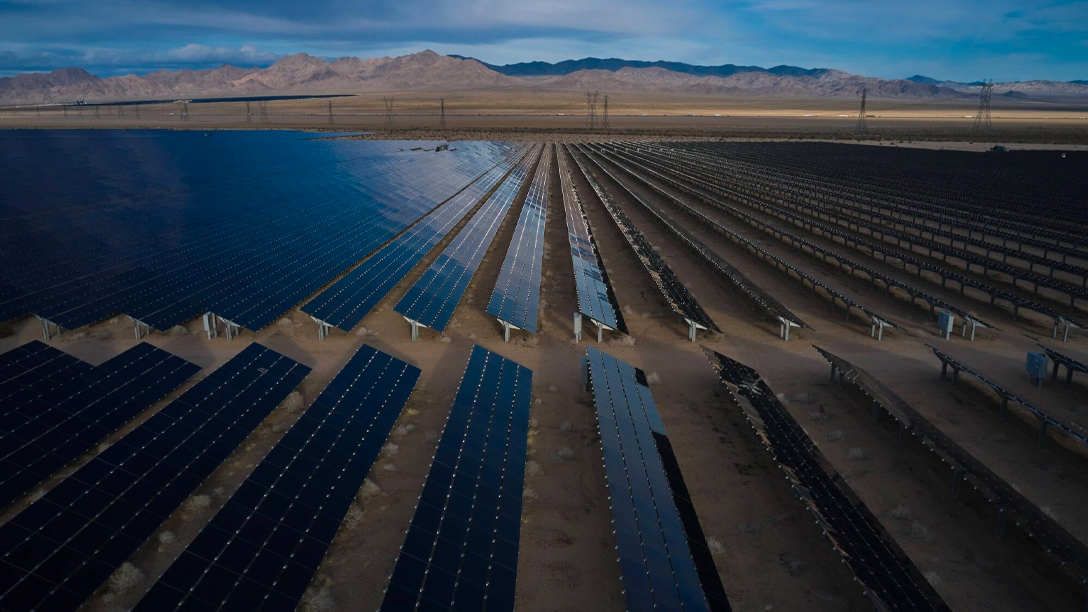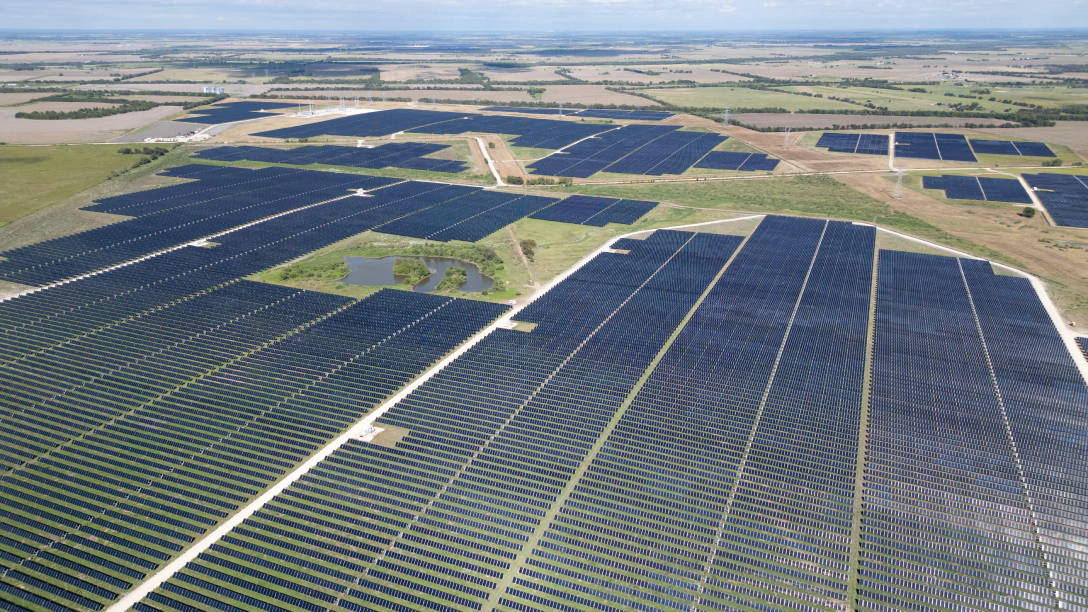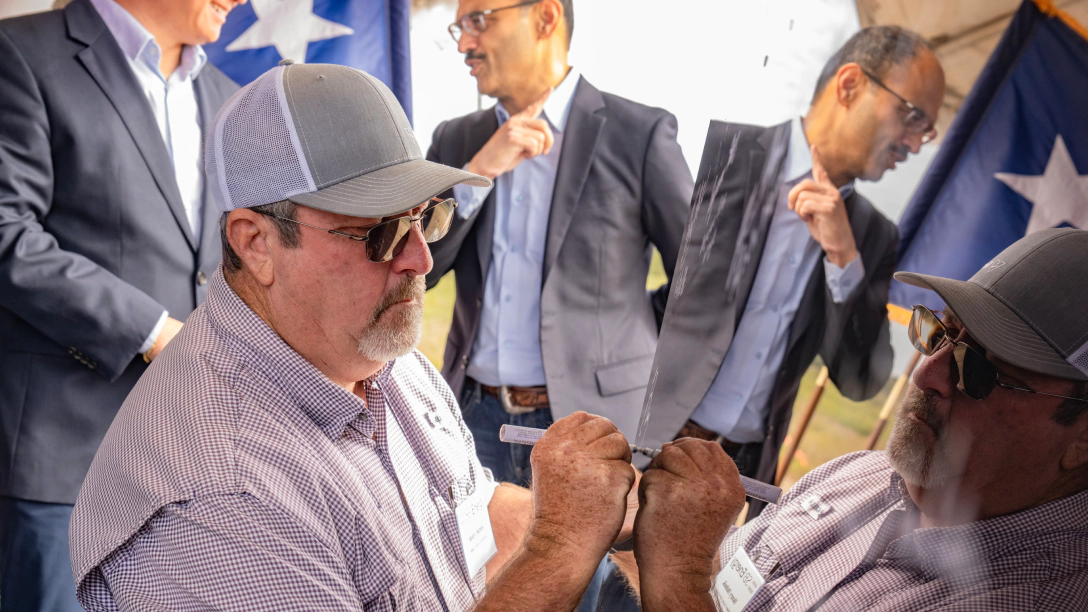
SoftBank-Backed Solar Company Is First to Qualify for Key Biden Tax Credits
Incentives in the Inflation Reduction Act are bolstering solar component manufacturing in the US.
A solar company backed by SoftBank Group Corp. and Ares Management Corp. lined up $1.9 billion in financing for projects that it said are the first to qualify for federal tax credits tied to buying components made in America.
SB Energy Global has secured solar modules made in Ohio, steel from Texas and Georgia, and devices that tilt panels to track the sun produced in states including Pennsylvania, according to a statement Thursday. Clean energy companies get tax incentives from President Joe Biden’s Inflation Reduction Act, which was passed last year and designed to bolster domestic manufacturing and green energy. Extra tax credits worth 10% for businesses that source 40% of their components from US producers were introduced earlier this year.
“Having a domestic supply chain means we don’t have to deal with customs, shipping from Asia,” said Rich Hossfeld, SB Energy co-chief executive officer. “Products coming from Ohio, Texas or other states allows us to much better manage our supply chain to avoid delays and cost overruns.”
The US has long relied on Chinese manufacturers for solar panels because they were often cheaper. But the appeal of panels made domestically began to grow for some developers even before the IRA was passed. Supply chain woes that emerged during the pandemic and uncertainty involving solar components made overseas — caused by Trump-era tariffs and because of allegations of forced labor in a part of China that makes a key component of most solar panels — prompted some US companies to secure equipment made in states such as Georgia.
The SB Energy projects illustrate how the American solar supply chain is continuing to take shape. The firm is buying solar modules made in a First Solar Inc. factory in Ohio and solar trackers from Nextracker Inc. plants in Tennessee and Nevada. The glass produced in Ohio uses sand mined in Michigan and soda ash from Wyoming, according to SB Energy.
To qualify for the extra 10% tax credit, projects need to satisfy a “domestic content” requirement. They can get another 10% tax credit by basing projects in so-called energy communities, which include areas of fossil fuel activity, high unemployment or where coal mines or coal-fired plants have shuttered. The tax credits are based on project costs.
SB Energy, based in Redwood City, California, got support from JPMorgan Chase & Co., Bank of America Corp., Morgan Stanley and Truist Bank to build four solar projects in Texas. All the projects qualify for the energy community tax credits, while three qualify for the domestic content credit. Part of the backing from the banks is made up of tax-equity funding.
The Texas solar projects are set to produce 1.3 gigawatts of power, according to the statement. Alphabet Inc.’s Google will buy about three quarters of that energy to power their data centers in the state.


